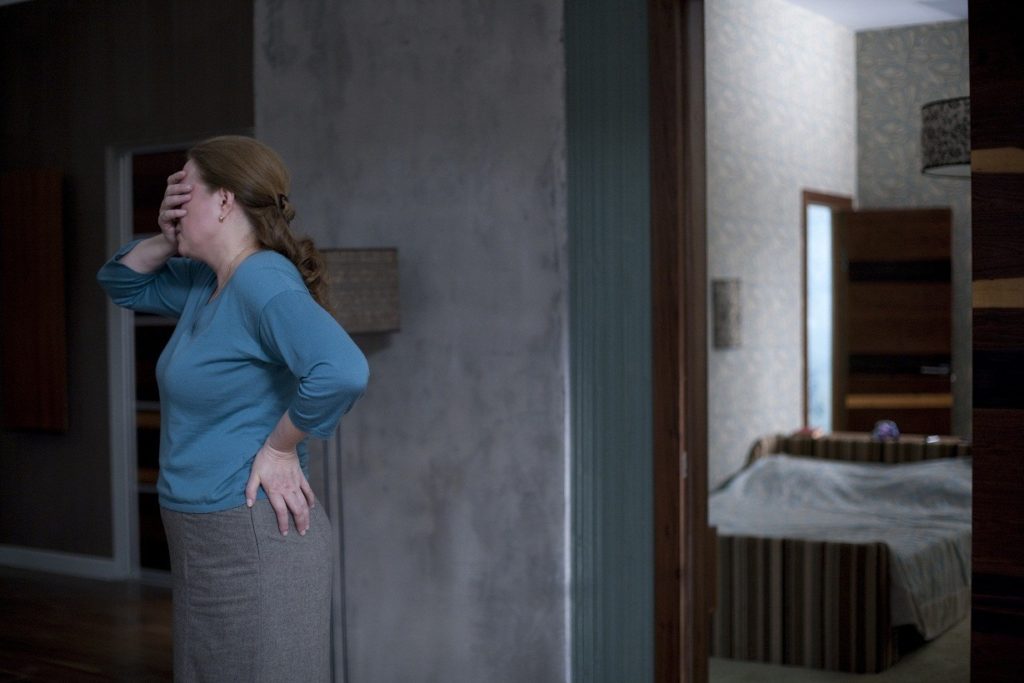When Korean director Bong Joon Ho took the stage at last year’s 77th Annual Golden Globe Awards to accept the Best Foreign Film honor for his subversive drama, Parasite (which also swept at the Academy Awards soon after), his speech caused a bit of controversy. Instead of merely thanking his actors and crew, the charismatic 50-year-old director grabbed the moment to encourage Americans to watch more foreign films: “Once you overcome the one-inch-tall barrier of subtitles, you will be introduced to so many more amazing films,” Joon Ho told the crowd. “I think we use just one language: the cinema.”
The next morning, Twitter lit up with people reacting to the director’s barbed jab at the average American’s reluctance to read subtitles. “How dare Bong Joon Ho accuse us of not watching enough foreign films!” Offensive or not, Bong Joon Ho called us out! But instead of getting defensive, why not give it a shot and watch more foreign and art films? There’s nothing to lose and a lot to gain, especially thanks to the ease of streaming.
If you’re not the type who comes home after a long day of work and throws on the Criterion Collection version of Seven Samurai for relaxation, don’t worry, you’re not alone! There are a few of us who not only struggle to watch more art-inspired and foreign films but also aren’t well versed in international classics either. Landmark films like Jules and Jim or Amarcord can be intimidating to even the most passionate of film lovers.
So, what do we do? How do cinematic neophytes, who tend to binge on Netflix like it’s a bag of Cheetos, scale the Mount Kilimanjaro that is world cinema? Easy, we find a more inviting path; we discover contemporary voices akin to our own. We unearth interesting filmmakers working in the modern vanguard of cinema. And this is where Filmatique comes in.
Filmatique, a new and inspiring streaming service, skips the classics and instead focuses on contemporary, pioneering filmmakers, mostly unknown, from across the world, including the States. Most of the movies on Filmatique’s platform have not only made their way through the film festival circuit, but get this, they’re also about human beings. You won’t find a robot, superhero or cheesy one-liner in the bunch. Filmatique’s categories include “Docs in Focus,” “Spotlight on Brazil,” “Foreign Language Oscar Submissions,” “Russian Auteur,” “Queer Cinema” and “The Future is Female.” Most of the movies in Filmatique’s catalogue are grounded and engaging.
In other words, subtitles or not, they’re accessible to the average movie-lover. They might be considered art films, so to speak, but most of these unknown gems tackle such universal subjects as the vagaries of love, the complexities of relationships, anxiety, sexual mores and the implications of politics and class in our day-to-day existence. We can all relate. So, with that, let’s take a quick dive into the cinema of the auteur, shall we?

It Felt Like Love (Zeitgeist Films)
After picking four movies at random, this writer (a self-professed Netflix binger) was pretty surprised by the engaging selection. Why dip a toe when you can throw yourself into the fire? This was the mindset in starting the Filmatique journey with a two-hour plus, Brazilian coming-of-age tale called Casa Grande. Fellipe Barbosa’s 2014 directorial debut revolves around 17-year-old Jean, who attends a private school and lives with his privileged family and their servants in a large house in present-day Rio De Janeiro.
While his family seems to be losing their fortune, Jean is more concerned with his budding sexuality. As he hits nightclubs with his friends, and seems to hit every adolescent emotional blockade, Jean starts to question his own masculinity and character. Pretty soon, he turns to the housekeepers and drivers in the house for advice, while slowly becoming disengaged from his family’s sense of propriety. Casa Grande is an at times unnerving portrait of class, hypocrisy and social structures in modern-day Brazil. It was a perfect launching pad and completely immersive. Also, make sure to read the essay featured on Filmatique’s website, The Newer Brazilian Cinema: Subjectivity and Social Change. It’s as cerebral and fascinating as the films it explores.
Russia’s Elena focuses on a middle-aged woman who is married to a controlling and wealthy businessman. Sneaking off to her deadbeat son from a past marriage and his downtrodden family in the Moscow projects, Elena constantly gives them money, much to her husband’s chagrin. After her husband gets ill and his estranged daughter enters the scene, the screws tighten and Elena becomes a story about crime and morality worthy of a Dostoyevsky novel. The film deservedly received the Special Jury prize at The Cannes Film Festival in 2011 and features a haunting score by Philip Glass. It’s gritty, unsettling and an incisive portrait of a society torn apart by hierarchy.

Elena (Zeitgest Films)
After visiting Brazil and Russia, we skip over to “The Future is Female” category, featuring all female directors, and check out Andrea Arnold’s first movie, Red Road from the UK. Filmed in a bleak but beautifully brown and gray tinted Glasgow, Scotland, Red Road opens on Jackie, a blue-collar woman in her early-thirties who works in the security unit at a housing complex where she studies surveillance cameras. One day, Jackie recognizes someone from her past on the monitor, and with an overriding obsession, she soon spends her days following the mystery man and his dodgy friends into the dregs of Scotland’s underbelly. Taking the Cannes’ Jury Prize in 2006, Red Road is a study of paranoia, poverty and revenge. It’s also an indictment of a country’s impoverishment and social ails.
Speaking of countries rife with social afflictions, why not bring it home to the United States, and check out another pick from “The Future is Female” category? We delve into Eliza Hittman’s debut feature, It Felt Like Love. Stark, frightening and emotionally precarious, this coming of age story centers on sixteen-year-old Lila, who spends a summer in South Brooklyn, not only intent on losing her virginity, but also spending her time with the wrong crowd.
Filmatique is new, but it’s an impressive addition to anyone’s streaming service cache and we can’t wait to see what else they have in store. Whether hailing from the States or across the pond, films here drop you into the lives of their characters. The filmmakers aren’t interested in entertaining you as much as pulling you in. Everything shares a naturalistic quality, as if you’re walking and breathing in the protagonists’ shoes. Although Filmatique is in its gestation period, the plan is to release one new film a week while removing one older one, maintaining the same amount of content on the site and curating it like a movie theater. You’ll also find a ton of filmmaker interviews and prolific essays. With traveling not really an option right now, foreign films and art films are the next best thing and for a mere $4.95/month, you can start your journey now. Check it out at watch.filmatique.com.
Advertising disclosure: We may receive compensation for some of the links in our stories. Thank you for supporting LA Weekly and our advertisers.

